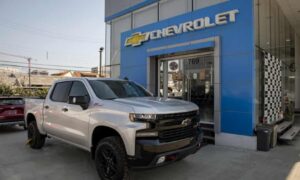
A loophole in Australia’s tax law is in effect subsidising the price of luxury utes such as Ram and Chevrolet SUVs, costing taxpayers more than $250m a year in forgone revenue, an analysis has found.
The research from the Australia Institute centres on the Luxury Car Tax (LCT) – introduced in 2000 for imported cars partly to protect the domestic industry that existed at the time – and an exemption that applies to certain utes.
The tax must be paid on the sale of all imported cars valued above a threshold, which is $80,576 this financial year. The 33% tax rate applies to the value of the car above the LCT threshold.
As all manufacturers have ceased car production in Australia, the LCT applies to any car that costs more than $80,576.
However, the LCT does not apply if a car is “a commercial vehicle designed mainly for carrying goods and not passengers”. This is defined as a car that can carry twice the weight in payload than it can carry in people – a requirement which almost every dual-cab ute on the market in 2024 can meet, according to the Australia Institute.
There is no requirement to demonstrate that the car is being bought primarily for commercial rather than personal use such as for a family car.
The Australia Institute research found this exemption acts as a loophole and that the difference in tax treatment “incentivises people to buy utes” by making them cheaper when compared with sedans and smaller, more fuel efficient cars.
